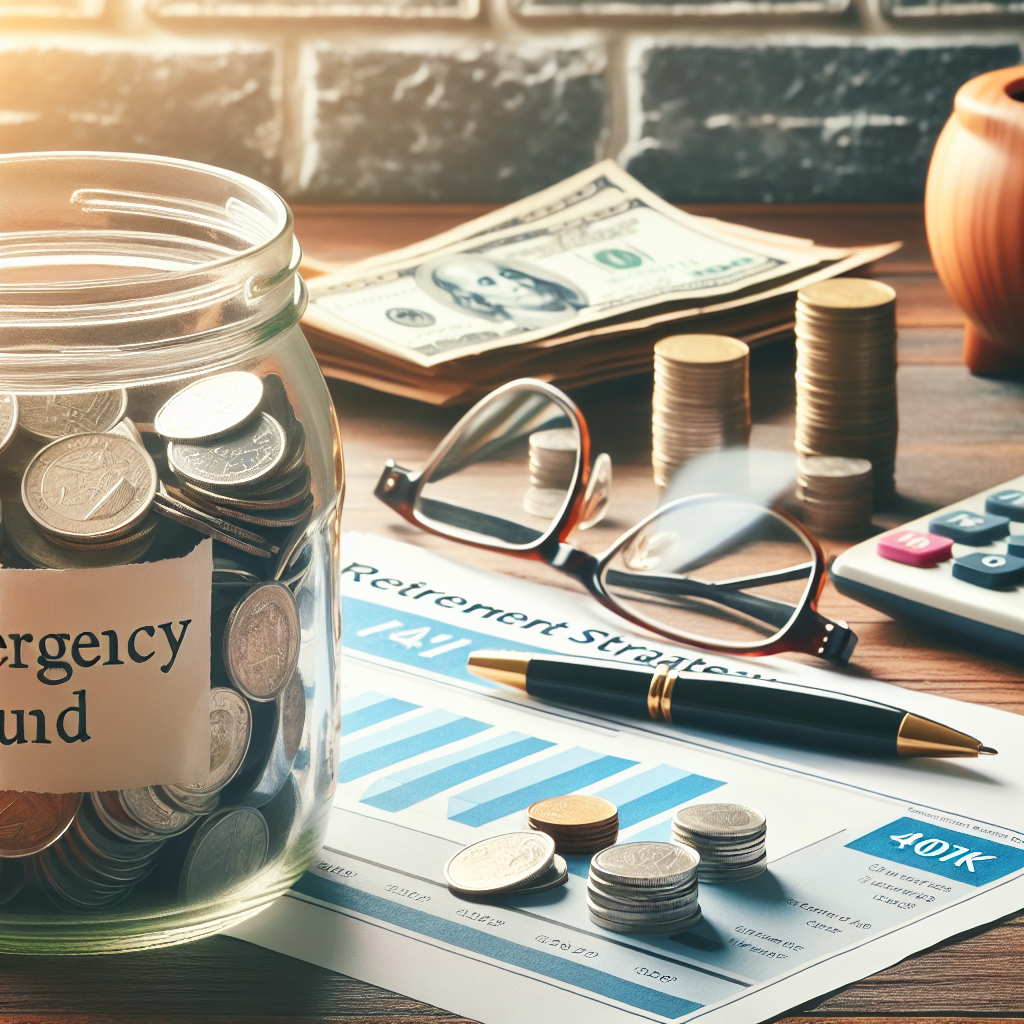Retirement might seem like the perfect time to kick back and enjoy life, but financial security during your golden years requires careful planning. One critical aspect of that planning is establishing a robust emergency fund. In this article, we will explore why an emergency fund is essential for a successful retirement strategy and how you can create one that supports your financial goals.
What is an Emergency Fund?
An emergency fund is a savings account designated to cover unexpected expenses, such as medical emergencies, home repairs, or sudden travel costs. It acts as a financial safety net, allowing you to manage unforeseen events without derailing your retirement plans.
Why You Need an Emergency Fund for Retirement
1. Protect Against Market Volatility
Retirement accounts can be subject to market fluctuations. Having an emergency fund allows you to avoid withdrawing from your investments during a market downturn, preserving your long-term growth potential. If you can cover unexpected expenses through your emergency fund, you won’t need to liquidate assets at a loss.
2. Prevent Debt Accumulation
Unexpected expenses can lead to financial strain and, ultimately, debt. If you rely solely on credit cards or loans to manage emergencies, you risk accumulating high-interest debt that can hinder your retirement savings. An emergency fund helps you maintain financial independence by providing a cushion during tough times.
3. Financial Peace of Mind
Knowing you have funds set aside for emergencies can significantly reduce stress. This peace of mind allows you to enjoy your retirement more fully, knowing you are prepared for the unexpected. You can travel, engage in hobbies, or even volunteer without the worry of unexpected costs interfering with your lifestyle.
How Much Should You Save?
Determining how much to save in your emergency fund can vary based on individual circumstances. However, a common guideline is to aim for 3 to 6 months’ worth of living expenses. Here’s how to tailor your emergency fund to your needs:
Assess Your Monthly Expenses
Take a closer look at your monthly expenditures, such as housing, utilities, groceries, and healthcare. This will give you a starting point for your emergency fund. It’s important to include all necessary expenses to ensure you are fully covered.
Consider Your Retirement Lifestyle
Think about how you plan to spend your retirement. If you anticipate traveling frequently or engaging in costly hobbies, it may be wise to save more in your emergency fund to cater to those lifestyle choices.
How to Build Your Emergency Fund
1. Set a Savings Goal
Once you have an idea of how much you need, set a specific savings goal. Determine a timeline for achieving this goal based on your current savings and monthly contributions.
2. Create a Dedicated Savings Account
Open a separate savings account specifically for your emergency fund. This helps you avoid the temptation to dip into the fund for non-emergency expenses.
3. Automate Your Savings
One of the easiest ways to build your emergency fund is by automating your savings. Set up automatic transfers from your checking account to your dedicated emergency fund account each month or receive direct deposits from your paycheck.
4. Monitor and Adjust
Review your emergency fund regularly, adjusting your contributions as needed. Life events such as retirement, health changes, or shifts in your financial situation may necessitate reevaluating your fund.
Additional Considerations for Your Retirement Strategy
1. Incorporate Your Emergency Fund into Your Financial Plan
Integrating your emergency fund into your overall financial strategy is crucial. It should work alongside your retirement savings goals, healthcare planning, and asset allocation to create a comprehensive retirement strategy.
2. Stay Informed About Retirement Trends
Staying informed about changing economic conditions and retirement trends can help you adapt your emergency fund strategy as needed. This will allow you to respond to evolving financial landscapes effectively.
Conclusion
Building an emergency fund is a foundational element of a sound retirement strategy. By giving yourself a financial cushion, you can navigate unexpected challenges without jeopardizing your long-term goals. Take action today to establish or enhance your emergency fund, ensuring that your retirement remains a time of enjoyment rather than financial uncertainty. With proper planning, you can face the future with confidence, knowing that you are prepared for whatever life may throw your way.

